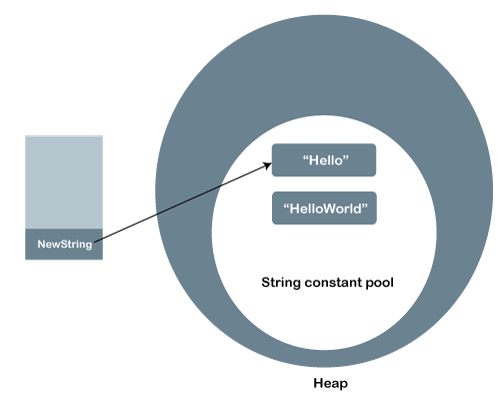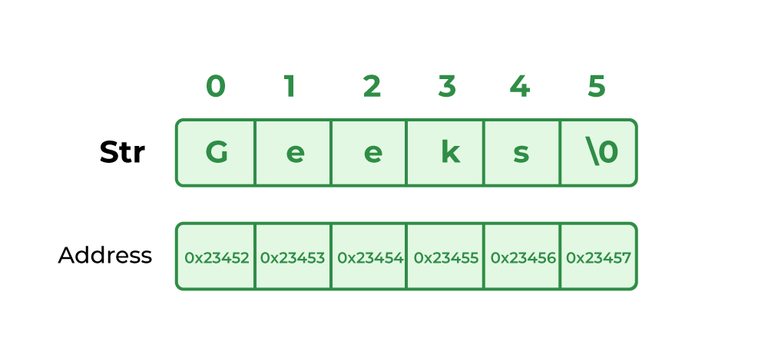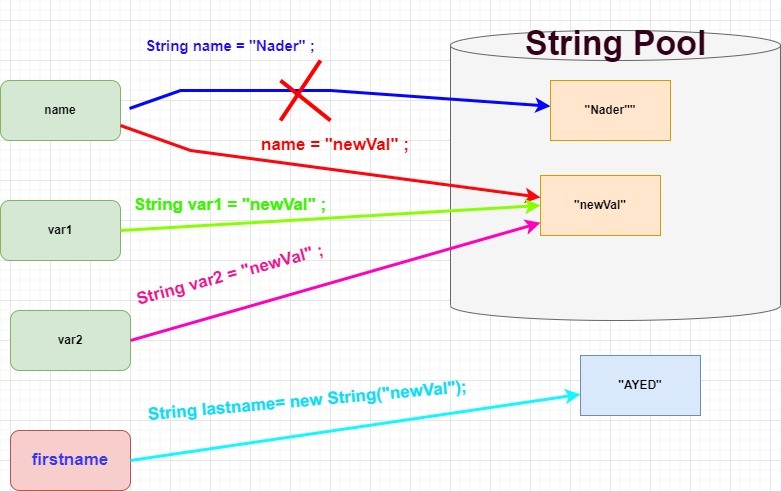Why Are Strings Immutable in Java? Enhancing Code Integrity
Why Are Strings Immutable in Java? Enhancing Code Integrity
Blog Article
Checking Out the Advantages of Immutable Strings in Modern Programs Paradigms
In the world of contemporary programs paradigms, the concept of immutable strings stands as a foundation of durable software advancement. The benefits they provide exceed mere benefit; they fundamentally alter the method data is dealt with within applications. By adopting immutable strings, developers can guarantee boosted data integrity, improved thread safety and security, simplified debugging processes, boosted safety and security steps, and efficient performance optimization. These advantages function as a testimony to the profound impact that accepting immutability can have on the integrity and efficiency of software program systems.
Boosted Information Honesty

By stopping the modification of string items, immutability removes the risk of unintended modifications to the information they hold. This not just boosts the safety of the information but also improves the dependability of the code that counts on these strings.
Immutability likewise supports safer multithreading environments, as concurrent access to unalterable strings does not position the risk of information corruption with synchronised alterations. This residential property simplifies the process of managing strings in parallel programs circumstances.
Fundamentally, immutability functions as a protective shield around the information stored within strings, enhancing their integrity by making sure that once specified, their worths remain unchanged throughout the program's implementation.

Improved Thread Security
Unalterable strings enhance the string security of programs by making sure that once a string item is created, its worth can not be modified. This residential or commercial property removes the threat of simultaneous strings trying to modify the same string simultaneously, which might cause data corruption or irregular states in the program - Why are strings immutable in Java?. In a multi-threaded setting, where several strings gain access to and adjust data concurrently, the immutability of strings gives a degree of safety and security by assuring that the data continues to be unchanged throughout its lifecycle
Simplified Debugging Processes
Offered the boosted string safety and security assisted in by unalterable strings, a substantial advantage arises in the world of streamlined debugging procedures. Immutable strings, once produced, can not be altered, making it simpler to map the flow of information and determine the resource of bugs in a program. This immutability makes sure that strings remain consistent throughout the implementation of the program, minimizing the probability of unexpected modifications that could cause mistakes.
When debugging with mutable strings, developers frequently come across concerns where a string's value is changed accidentally, making it testing to pinpoint the source of a pest. Nonetheless, with immutable strings, the data remains unmodified, enabling programmers to focus on assessing the actual reasoning of the code instead of finding where and when a string was modified improperly.
Furthermore, immutable strings streamline the debugging procedure by allowing less complicated recreation of pests. Given that immutable strings do not transform state, developers can recreate and research insects better, causing quicker recognition and resolution of issues within the codebase. This streamlined debugging process eventually contributes to higher software program high quality and enhanced overall development performance.

Boosted Protection Measures
Enhancing data defense and fortifying system honesty, the use of immutable look what i found strings in software application applications contributes substantially to increased security measures. Unalterable strings, once created, can not be changed, providing a critical defense versus destructive tampering or unapproved accessibility. By ensuring that sensitive information kept in strings remains unaltered throughout the program's implementation, the threat of data breaches or injection strikes is greatly minimized. Why are strings immutable in Java?. Unalterable strings likewise play an essential duty in stopping usual security susceptabilities such as buffer overflows and SQL injection strikes, as attempts to manipulate string data at runtime are inherently restricted.
Furthermore, the immutability of strings boosts the predictability of program actions, making it much easier to confirm inputs and stop unforeseen changes that can compromise protection. This predictability simplifies the process of auditing and confirming code, enabling programmers to recognize possible safety loopholes better. Generally, including immutable strings into software development methods not only boosts the effectiveness and dependability of applications but also enhances their durability against security hazards.
Effective Performance Optimization
Structure upon the structure of enhanced safety measures achieved via the use of immutable strings, a vital element to think about in software application development is effective performance optimization. When managing mutable strings, procedures like concatenation or substring production often result in the development of new string things, resulting in memory expenses and enhanced handling time. Nevertheless, with unalterable strings, these operations can be optimized to boost performance. By allowing strings to remain constant and unchangeable, unalterable strings help with much better memory administration and caching possibilities, eventually enhancing the overall performance of the software application.
Immutable strings additionally play a crucial role in multithreaded environments by promoting thread security. Why are strings immutable in Java?. Because immutable strings can not be customized when produced, they can be shared across strings without the risk of unforeseen modifications, reducing the requirement for synchronization systems and improving concurrency. Furthermore, unalterable strings streamline debugging procedures as developers can trust that a string's worth will remain constant throughout the program's execution, removing possible errors triggered by mutable state adjustments. In verdict, using unalterable strings not just improves safety yet additionally dramatically my review here adds to the efficient performance optimization of modern-day software program systems.
Final Thought
In conclusion, the benefits of making use of immutable strings in modern shows paradigms can not be overstated. Boosted information integrity, boosted string safety and security, simplified debugging processes, raised safety procedures, and efficient performance optimization here are the findings all add to the overall performance of programs jobs. By incorporating immutable strings right into programming methods, programmers can profit from a much more trusted and durable codebase.
Immutability, a vital feature of strings in programming languages such as Java and Python, makes sure that when a string things is created, it can not be changed or customized.Unalterable strings boost the string security of programs by making sure that when a string object is developed, its value can not be changed. Immutable strings also play a vital duty in preventing typical safety vulnerabilities such as barrier overflows and SQL shot strikes, as efforts to control string data at runtime are inherently restricted.
By allowing strings to continue to be consistent and unchangeable, unalterable strings facilitate far better memory management and caching opportunities, eventually boosting the general effectiveness of the software.
Immutable strings simplify debugging procedures as developers can trust that a string's worth will certainly stay constant throughout the program's execution, eliminating prospective errors triggered by mutable state adjustments.
Report this page